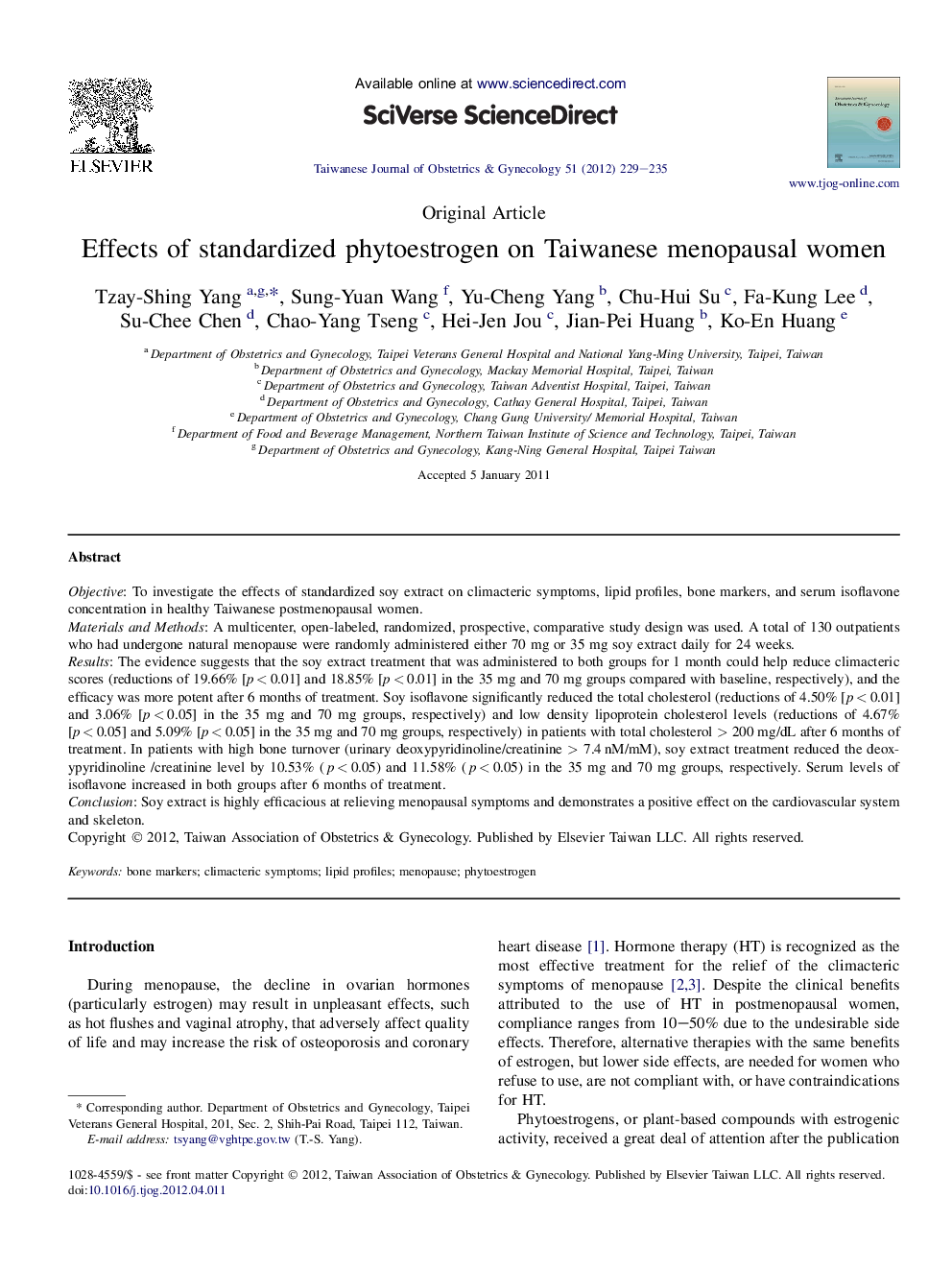| Article ID | Journal | Published Year | Pages | File Type |
|---|---|---|---|---|
| 3975431 | Taiwanese Journal of Obstetrics and Gynecology | 2012 | 7 Pages |
ObjectiveTo investigate the effects of standardized soy extract on climacteric symptoms, lipid profiles, bone markers, and serum isoflavone concentration in healthy Taiwanese postmenopausal women.Materials and MethodsA multicenter, open-labeled, randomized, prospective, comparative study design was used. A total of 130 outpatients who had undergone natural menopause were randomly administered either 70 mg or 35 mg soy extract daily for 24 weeks.ResultsThe evidence suggests that the soy extract treatment that was administered to both groups for 1 month could help reduce climacteric scores (reductions of 19.66% [p < 0.01] and 18.85% [p < 0.01] in the 35 mg and 70 mg groups compared with baseline, respectively), and the efficacy was more potent after 6 months of treatment. Soy isoflavone significantly reduced the total cholesterol (reductions of 4.50% [p < 0.01] and 3.06% [p < 0.05] in the 35 mg and 70 mg groups, respectively) and low density lipoprotein cholesterol levels (reductions of 4.67% [p < 0.05] and 5.09% [p < 0.05] in the 35 mg and 70 mg groups, respectively) in patients with total cholesterol > 200 mg/dL after 6 months of treatment. In patients with high bone turnover (urinary deoxypyridinoline/creatinine > 7.4 nM/mM), soy extract treatment reduced the deoxypyridinoline /creatinine level by 10.53% (p < 0.05) and 11.58% (p < 0.05) in the 35 mg and 70 mg groups, respectively. Serum levels of isoflavone increased in both groups after 6 months of treatment.ConclusionSoy extract is highly efficacious at relieving menopausal symptoms and demonstrates a positive effect on the cardiovascular system and skeleton.
